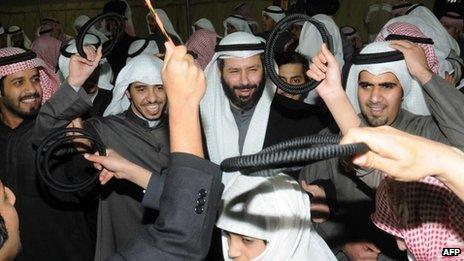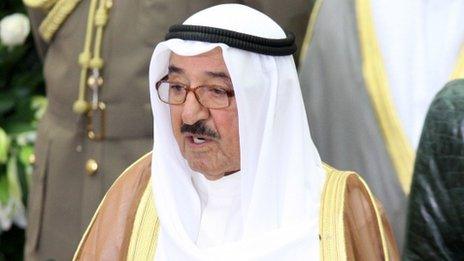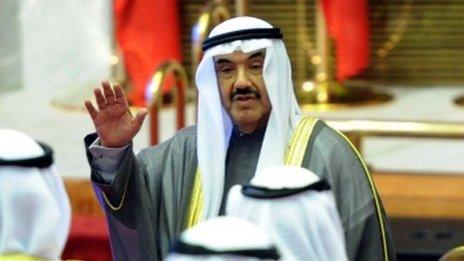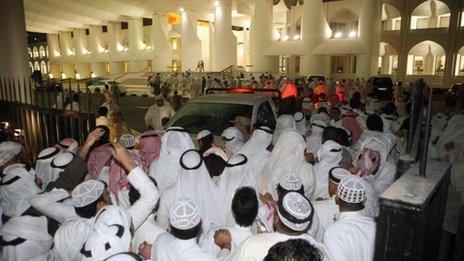Kuwait election: Islamist-led opposition makes gains
- Published

Kuwait's parliament has the most powers of any elected body in the Gulf
Kuwait's Islamist-led opposition has made significant gains in the Gulf state's fourth parliamentary election in six years, official results show.
Opposition candidates won 34 of the 50 seats in the National Assembly, with 23 of them going to Sunni Islamists.
Liberals won nine seats, while women did not win any. There were four women in the last parliament.
Kuwait's Emir, Sheikh Sabah al-Ahmed al-Sabah, called the snap election amid a crisis over corruption allegations.
He said in December that "deteriorating conditions" had led to "difficulties in achieving progress and threatened the country's higher interests".
In November, the cabinet resigned shortly before former Prime Minister Sheikh Nasser al-Mohammed al-Sabah was to be asked about the alleged payment of bribes to pro-government MPs.
Protesters had stormed the parliament building the previous month when the government tried to prevent Sheikh Nasser facing questions.
Kuwait's parliament has the most powers of any elected body in the Gulf, and opposition MPs openly criticise the ruling Sabah family. But the Sabahs retains full control over key government and executive posts.
Friday's results showed Islamist candidates, including ultra-conservative Salafists, winning 14 seats, while independent Islamists representing tribes took nine. Tribal-based candidates took 20 seats overall.
Another seven seats when to candidates from the Shia minority community, which generally sides with the Sabah family.
"The situation cannot remain as it was," opposition candidate Faisal al-Mislem told supporters before the election. "If this election is just a game of musical chairs, then it's a waste of time."
- Published6 December 2011

- Published28 November 2011

- Published16 November 2011

- Published9 December 2010
- Published26 October 2022